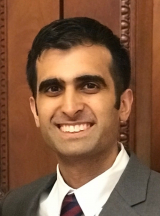Dissecting the Contribution and Inheritance of Germline DNA Damage Repair Gene Mutations in Neuroblastoma

Project Goal:
Our group and others have advanced the use of new deep-learning methods for discovering germline variants. In recent years, there has also been a surge in whole-exome sequencing (WES) and whole-genome sequencing (WGS) data of germline (normal) tissue from pediatric patients with cancer. We have identified over 1,150 cases of neuroblastoma with normal sequencing, with matching parental sequencing and tumor sequencing for many of these cases. We hypothesize that germline mutations generally, and specifically in genes involved in DNA damage repair (DDR), play an important role in neuroblastoma disease development beyond what is already known. Our goal is to identify the genes that are most recurrently mutated in patients with neuroblastoma relative to individuals without cancer. We will also analyze sequencing data from parents to determine how these germline mutations are acquired. Finally, we will evaluate sequencing data from tumors to identify associations between specific types of germline mutations and tumor genomic features associated with high-risk disease.
Project Update 2025:
We found that a class of mostly inherited variants in normal tissues, called germline structural variants, increases risk for neuroblastoma. Structural variants are usually deletions (loss of DNA) or duplications (gain of DNA) but can also include more complex events called inversions or translocations. Specifically, we found that large germline structural variants, structural variants that impact genes that don’t have many mutations in the general population, structural variants that impacting DNA damage repair genes, and some structural variants in the noncoding regions of the genome are risk factors for the development of neuroblastoma.

